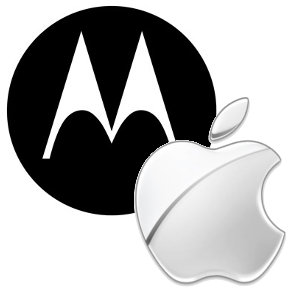 Motorola has seen two significant decisions go in its favour in its ongoing patent disputes with Apple.
Motorola has seen two significant decisions go in its favour in its ongoing patent disputes with Apple.
Last week, a German court upheld a ban imposed on push notifications used by iOS devices in the country, Foss Patents’ Florian Mueller reported.
Apple had appealed against the injunction but the Karlsruhe Higher Regional Court denied the company’s request, which could see the ban on the push notification feature of its iCloud and MobileMe services remain in force for a year or more, Mueller said.
“We are pleased with [Wednesday’s] ruling in Germany denying Apple’s motion to stay the injunction related to our push email patent. We will continue to protect our intellectual property,” Motorola said in a statement.
Mueller said Motorola and Google, Motorola’s would-be new owner, will continue to fight Apple in the courts.
“The push notification patent, even if enforced for several more years, won’t force Apple to settle with the entire Android ecosystem on Google’s terms. But Motorola has many more patents, and Google acquired thousands of patents from IBM and other sellers last year. There is potential for more litigation,” he said.
Apple’s appeal came in the same week that it saw an ongoing case against Samsung, also taking place in German courts, suspended.
Meanwhile, Motorola also notched up a win against Apple in the US, where the International Trade Commission (ITC) upheld an initial recommendation it made in January where it stated that Motorola should not be found to infringe three of Apple’s patents.
But Apple also shows an appetite for continuing its patent wars against Motorola and other Android handset manufacturers, Mueller said.
“This is the end of the ITC investigation. Apple can appeal this decision to the Federal Circuit, and in my view, this is very likely to happen,” he said.
But more patent dispute cases are likely to end up going through German courts rather than American ones, Mueller added, as the German court processes tend to move more quickly, giving litigants more chance of getting “short-term high-impact decisions” go in their favour.





